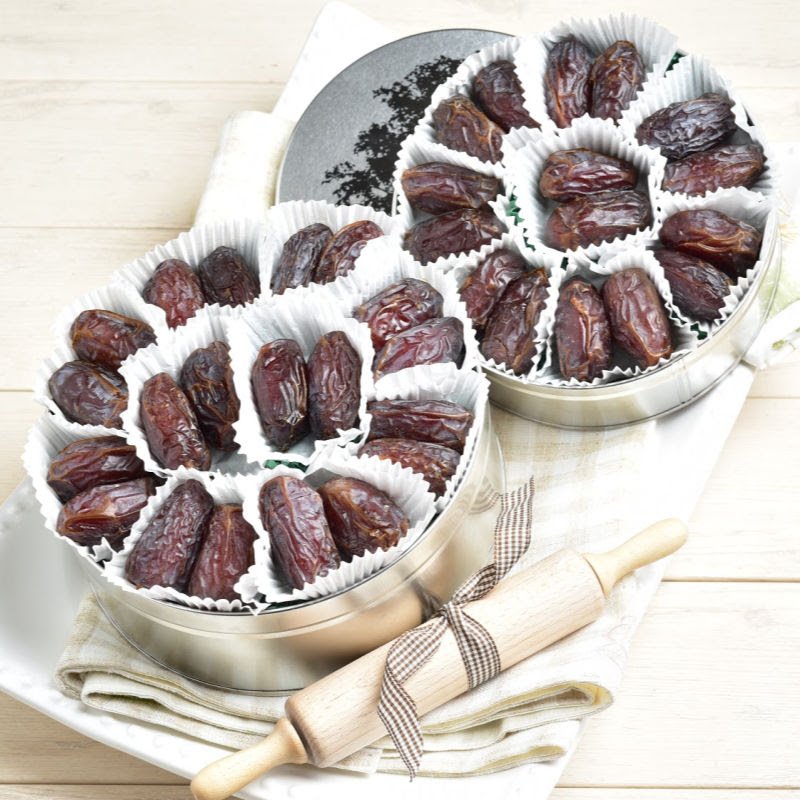
Dates Across Faiths & the Role of Pemborong Kurma
Introduction:
Dates, or kurma, have been cherished throughout history for their delicious taste and nutritional benefits. However, they hold a deeper meaning in various faiths and religions. In this blog post, we will explore the symbolic meaning of dates in different faiths, uncovering their cultural and religious significance. We will also discuss Pemborong Kurma (date wholesalers). Join us on a journey to discover the spiritual and historical connections between dates and various religions, and understand the role they play in religious rituals, celebrations, and traditions.
Date Wholesalers: The Role of Dates Suppliers
In the world of dates, Pemborong Kurma refers to dates suppliers or distributors. These businesses play a crucial role in ensuring the availability and accessibility of dates to individuals, communities, and religious institutions. Wholesalers sources dates from various regions known for their date production, such as the Middle East, North Africa, and other parts of the world. They offer a wide range of date varieties, ensuring that customers have options to choose from based on their preferences and requirements.
The Significance of date wholesalers in Different Faiths:
1. Supplying Dates for Religious Observances:
Date wholesalers plays vital role in providing dates specifically for religious observances. During the holy month of Ramadan, Muslims worldwide rely on dates to break their fast at sunset. They ensure a steady supply of high-quality dates during this period, enabling Muslims to observe this important ritual.
2. Supporting Festivals and Celebrations:
Dates are often an essential part of religious festivals and celebrations in different faiths. Date wholesalers ensure an adequate supply of dates during these festive occasions, allowing individuals and communities to partake in the traditions and rituals associated with these events.
3. Catering to Religious Institutions:
Religious institutions such as mosques, temples, and synagogues often require a significant quantity of dates for various religious activities and events. Date wholesalers serve as a reliable source for these institutions, providing them with the necessary quantities of dates to meet their needs.
The Quality and Variety Offered by date wholesalers:
Date wholesalers understands the importance of quality when it comes to dates. These suppliers take great care in selecting dates that meet the highest standards of freshness, taste, and texture. They offer a wide variety of dates, including popular choices such as Medjool, Deglet Noor, Ajwa, and Barhi, among others. This variety allows customers to choose the type of dates that align with their preferences and cultural practices.
Now let’s check out the concept of dates in a variety of religions:
The Symbolic Meaning of Dates in Different Faiths:
1. Islam:
In Islam, dates hold great importance. They are mentioned in the Quran and are associated with the holy month of Ramadan. Muslims break their fast with dates during iftar, symbolizing the tradition of Prophet Muhammad. Dates are considered a blessed fruit and are believed to provide nourishment and energy during fasting.
2. Judaism:
In Judaism, dates hold symbolic significance during the holiday of Sukkot. Dates are part of the “Seven Species” mentioned in the Torah, representing the bounty of the land of Israel. They are used in culinary preparations and are enjoyed as a reminder of the spiritual connection to the land and the harvest.
3. Christianity:
In Christianity, dates are associated with the birth of Jesus Christ. They are believed to have been present in the region of Bethlehem during his birth. Dates also hold symbolic meaning during the Lenten season and are sometimes consumed as a substitute for meat on certain days.
4. Hinduism:
In Hinduism, dates are offered as a sacred fruit during religious ceremonies and rituals. They symbolize prosperity, abundance, and fertility. Dates are also associated with the celebration of Eid and are offered as a gesture of hospitality and goodwill.
5. Buddhism:
In Buddhism, dates are not explicitly mentioned in religious texts. However, in some Buddhist cultures, dates hold symbolic significance during festivals and religious events. They are often included as part of traditional offerings to deities and ancestors.
Cultural and Religious Significance of Kurma:
Kurma, or dates, go beyond their nutritional value and serve as a symbol of spirituality, blessings, and tradition. They are deeply intertwined with cultural practices and religious customs, connecting people to their faith and heritage. The cultural and religious significance of kurma can be observed in various ways:
1. Religious Rituals:
Dates are used in religious rituals and ceremonies, symbolizing divine blessings, purity, and renewal. They are often shared among worshippers as a symbol of unity and spiritual nourishment.
2. Celebrations and Festivals:
Dates play a prominent role in religious celebrations and festivals. They are offered to mark significant occasions and are enjoyed as a sweet indulgence during festive gatherings.
3. Traditional Cuisine:
Dates are a common ingredient in traditional dishes prepared during religious holidays and cultural festivities. They add a touch of sweetness and symbolism to these culinary creations.
4. Historical and Spiritual Connections:
Dates have been consumed for centuries and are mentioned in ancient texts and scriptures. They hold historical and spiritual connections that transcend generations, reminding people of their roots and faith.
Conclusion:
The symbolic meaning of dates in different faiths is a testament to the profound connection between food, spirituality, and culture. In Islam, dates represent blessings and nourishment during Ramadan. In Judaism, they symbolize the abundance of the land during Sukkot. In Christianity, they are associated with the birth of Jesus Christ. In Hinduism, they signify prosperity and are offered during religious ceremonies. While the specific symbolism may vary, the cultural and religious significance of kurma holds a common thread of spirituality, tradition, and unity. By understanding and embracing the symbolic meaning of dates, we can appreciate their deeper significance and the role they play in connecting people to their faith and heritage.
Key Highlights:
– Dates hold symbolic meaning in various faiths, including Islam, Judaism, Christianity, Hinduism, and Buddhism.
– They are associated with religious rituals, celebrations, and traditions.
– Dates represent blessings.